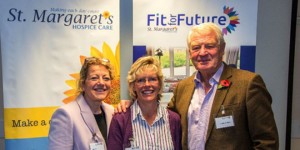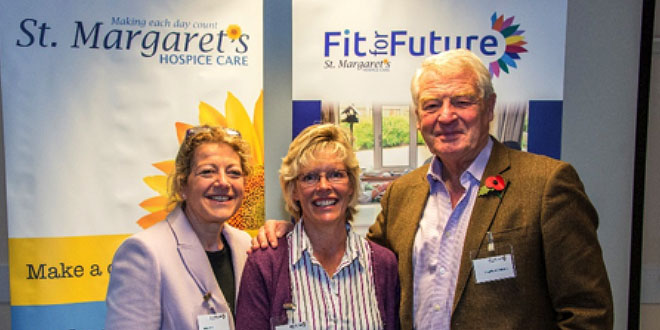Consultation Looks At Ways To Improve Palliative Care In The Community
 Fit for Future, a Somerset-wide review of how end of life care could be improved, will focus on the growing role the community is playing in delivering essential services at its next panel meeting.
Fit for Future, a Somerset-wide review of how end of life care could be improved, will focus on the growing role the community is playing in delivering essential services at its next panel meeting.
The Fit for Future review, led by St Margaret’s Hospice, represents one of the largest community engagement programmes in the country and will provide a blueprint for better and more efficient palliative care for Somerset and beyond.
The review brings together a panel of healthcare experts, national charities, families, patient representatives, church leaders, academics, neighbouring hospices and the local authority, to assess the action that is needed now to support end-of-life care provision in the future.
As we experience a growing elderly population in the country, there will be a significant increase in the numbers of patients in need of palliative care above the current position of 5,000 a year, which is already a challenge.
That means improvements in the way we work with the network, from GPs and hospitals through to paramedics, domiciliary providers, families and carers. Much of this supported care will have to take place in the community.
Nicole Woodwyatt, Speech and Language therapist and Jo Stuttaford, Oncology and Palliative Care expert, both working with the national charity MacMillan Cancer Support, will talk about the innovative Midhurst Macmillan Service, designed to provide direct care and support to patients in the last 12 months of life to prevent unnecessary hospital admissions and enable them to live at home and die in the place of their choice.
Alongside health professionals and a dedicated care co-ordinator, volunteers provide additional support such as shopping and gardening. The service was set up in such a way that even specialist medical interventions could be delivered at the patient’s home.
The Midhurst model was first rolled out in 2006 in rural areas across Surrey, Hampshire and West Sussex and was considered a success amongst patients who generally had fewer A&E attendances, spent less time in hospital and were more likely to die in their preferred place of care.
Research has already demonstrated that the Midhurst model, which is essentially an improved patient and carer experience, could be replicated across other areas in the UK.
It has also demonstrated that shared care between services and service providers is key to a better experience of care, which fits perfectly with what ‘Fit for Future’ is looking to achieve.
Dr Joanne Cummings, Clinical Lead for Collaborative Care and Supportive Planning for the Royal College of GPs UK, will also talk about the South Somerset Symphony Programme, a new integrated care model focusing on patients with three or more specific long term conditions. It gives the patient a single care plan which reduces delays and multiple appointments, saving time, stress and money.
Ann Lee, CEO at St Margaret’s Hospice, added: “Somerset is a very rural area and providing the best levels of community care can often prove very challenging. This is why we need to look at more patient-focused and tailored models of care.
“In the next 15 years, it is predicted that, without reform, around 40% of the population will die alone without adequate care and support. We should now, more than ever, pull our resources together to ensure that everyone receives care that is right for them.”
To have your say in how palliative care could be improved, visit www.fit4future.org.uk, follow the campaign on Twitter @StMargaretsF4TF and like our ‘Fit for Future’ Facebook page. Alternatively, you can email the team at fitforfuture@st-margarets-hospice.org.uk or write to Fit for Future, St. Margaret’s Hospice, Heron Drive, Bishops Hull, Taunton TA1 5HA.





